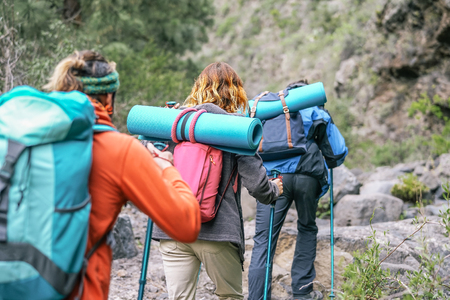Introduction to Eco-Conscious Camping in Britain
Wild camping across the British Isles offers a unique opportunity to immerse oneself in some of the most beautiful and unspoilt landscapes in the world, from the rugged highlands of Scotland to the rolling hills and woodlands of Wales and England. As wild camping gains popularity among outdoor enthusiasts, it becomes ever more critical to approach this adventure with an eco-conscious mindset. Britain’s countryside is not only a source of national pride but also a delicate ecosystem that requires our respect and protection. The choices we make, especially regarding our gear—such as sleeping bags—have a significant impact on both our experience and the environment. By prioritising sustainable practices and mindful product selections, we can help preserve these treasured wild spaces for future generations, ensuring that the privilege of wild camping remains available to all who cherish the great British outdoors.
2. Key Considerations for Eco-Friendly Sleeping Bags
When selecting an eco-conscious sleeping bag for wild camping in Britain, there are several critical factors to bear in mind. The UK’s temperate climate, frequent rainfall, and legal requirements around wild camping necessitate a careful approach to both environmental impact and practical functionality.
Material Sustainability
Prioritise materials with minimal ecological footprints. Opt for recycled or responsibly sourced synthetic fibres and natural fillings such as organic cotton or ethically sourced down. These choices help reduce waste and environmental harm associated with traditional manufacturing.
Climate Suitability
The British weather is known for its unpredictability, particularly in upland and coastal regions. An eco-friendly sleeping bag should offer adequate insulation and moisture resistance without compromising on sustainability. Consider the following table when assessing materials suitable for the UK climate:
| Material Type | Eco Credentials | Performance in Wet Conditions | Recommended Season |
|---|---|---|---|
| Recycled Synthetic Fibres | High (reduces landfill use) | Excellent water resistance | All seasons |
| Ethically Sourced Down | Moderate (biodegradable, but animal welfare concerns) | Poor when wet unless hydrophobic treated | Spring/Autumn (dry conditions) |
| Organic Cotton Filling | High (renewable, chemical-free) | Poor moisture management | Sheltered summer camps |
Compliance with Wild Camping Regulations
The legality of wild camping varies across Britain; for example, it is largely permitted in Scotland under the Outdoor Access Code but restricted elsewhere without landowner permission. Always choose sleeping bags that leave no trace: avoid chemically treated materials that may leach into the environment and select products designed for durability to minimise replacement frequency.
Lifespan and End-of-Life Options
An often-overlooked factor is the end-of-life plan for your gear. Seek out brands offering take-back schemes or products designed for recycling at the end of their usable life. Longevity not only benefits the environment but also aligns with the resourceful ethos of British outdoor enthusiasts.
![]()
3. Materials Matter: Sustainable Options
When selecting an eco-conscious sleeping bag for wild camping in Britain, the choice of materials is a crucial consideration. The unpredictable British weather demands not only warmth and durability but also responsible sourcing and production. Increasingly, manufacturers are turning to recycled fabrics, such as polyester made from post-consumer plastic bottles. These materials significantly reduce environmental impact by diverting waste from landfills and minimising the use of virgin resources.
For those concerned about animal welfare, down alternatives have become highly sophisticated. Synthetic fills like PrimaLoft® and ThermoBall™ offer excellent insulation even in damp conditions—a frequent challenge in the UK’s maritime climate. Unlike traditional down, these materials maintain their loft and thermal efficiency when wet, ensuring reliable comfort on rainy or misty nights. Many brands now offer sleeping bags filled with recycled synthetic fibres, further enhancing their sustainability credentials.
Additionally, look for sleeping bags treated with environmentally friendly water-repellent finishes, such as PFC-free DWR (Durable Water Repellent) coatings. These coatings help keep moisture at bay without relying on harmful chemicals that can leach into the countryside. As a responsible wild camper, opting for products certified by organisations like bluesign® or OEKO-TEX® ensures that your gear meets stringent environmental and social standards throughout its production lifecycle.
In summary, prioritising recycled fabrics, advanced synthetic insulations, and non-toxic finishes equips you to face Britain’s ever-changing elements while treading lightly on the landscape. By choosing thoughtfully sourced materials, you contribute to preserving the natural beauty that makes wild camping in Britain so rewarding.
4. Practical Recommendations for British Wild Campers
When selecting an eco-conscious sleeping bag for wild camping in Britain, it is vital to consider both environmental impact and suitability for the UK’s unpredictable climate. Below, I present top sustainable sleeping bag options readily available in Britain, highlight their key features, and provide guidance on where to source them.
Leading Eco-Friendly Sleeping Bag Brands in the UK
| Brand | Model | Main Eco Features | Best for UK Conditions | Where to Buy |
|---|---|---|---|---|
| Rab | Solar Eco Series | Recycled fabrics & insulation; PFC-free DWR | Damp weather, 3-season use | Rab UK, Cotswold Outdoor, Ellis Brigham |
| Vaude | Rotstein 450 DWN | RDS-certified down; recycled outer shell | Cooler nights, spring/autumn trips | Trekitt, Ultralight Outdoor Gear |
| NEMO Equipment | Kayo Down Mummy Bag | BluSign approved materials; RDS down; no harsh chemicals | Mild British summer conditions | NEMO UK stockists, Webtogs |
Key Features Suited to British Wild Camping
- Synthetic Insulation: Performs reliably even when damp – crucial for the UK’s moist environment.
- PFC-Free Water Repellency: Reduces harmful chemicals while maintaining essential weather resistance against rain and dew.
- Sustainable Sourcing: Look for RDS (Responsible Down Standard) certification or fully recycled synthetic fill.
Where to Shop Sustainably in Britain
- Cotswold Outdoor: Wide range of eco-labelled products with knowledgeable staff for advice.
- Trekitt: Specialises in technical outdoor kit and provides detailed sustainability information online.
- Direct from brands: Purchasing directly from Rab or Vaude ensures product authenticity and supports brands leading sustainable change.
Final Considerations for Responsible Wild Camping
Selecting a sleeping bag with proven eco credentials not only minimises your environmental footprint but also ensures reliable performance during your British wild camping adventures. Always check temperature ratings, pack weight, and ethical certifications before purchase—British conditions are best met by gear that balances warmth, water resistance, and sustainability.
5. Responsible Use and End-of-Life Practices
Investing in an eco-conscious sleeping bag for wild camping in Britain is only the first step towards sustainable outdoor adventures. How you care for, maintain, and ultimately dispose of your sleeping bag plays a crucial role in minimising its overall environmental impact.
Extending Sleeping Bag Longevity
Proper care can significantly extend the lifespan of your sleeping bag. Always air out your sleeping bag after each use, especially after damp nights typical of British weather. Store it uncompressed in a breathable sack to prevent material degradation. When cleaning is necessary, opt for gentle hand washing with environmentally friendly detergents rather than frequent machine washes, as this preserves both insulation and fabric integrity.
Embracing the UK Repair Culture
The UK has a strong tradition of repair and reuse, reflected in local initiatives and specialist services dedicated to outdoor gear mending. Instead of discarding a sleeping bag at the first sign of wear, consider repairing minor rips or replacing zips. Many British outdoor retailers offer repair workshops or partner with skilled craftspeople who can restore your kit to good-as-new condition. Embracing this repair culture not only saves money but also supports local businesses and reduces landfill waste.
Ethical Disposal and Recycling
When your sleeping bag truly reaches the end of its useful life, ethical disposal is paramount. Some manufacturers and outdoor shops in the UK run take-back schemes or recycling programmes specifically for technical textiles. Check if your brand participates, or seek out local textile recycling centres that accept sleeping bags. If recycling isnt feasible, consider donating a gently used bag to charities supporting rough sleepers or community groups, ensuring it continues to provide warmth where its most needed.
Summary
Sustainable wild camping in Britain requires not just eco-conscious purchasing decisions, but also responsible ownership throughout a sleeping bag’s lifecycle. By prioritising careful maintenance, repairs over replacement, and ethical end-of-life options, you contribute meaningfully to preserving Britains natural beauty for future generations.
6. Conclusion: Minimising Impact While Enjoying the Wild
Choosing an eco-conscious sleeping bag is not merely a matter of personal preference—it is a crucial step towards preserving Britains diverse wild landscapes for future generations. As wild campers, we bear a collective responsibility to respect and protect these fragile environments. By prioritising sustainable materials, ethical manufacturing practices, and durability in our gear selections, we significantly reduce our environmental footprint. Moreover, supporting local British brands with transparent supply chains further strengthens the impact of our choices. Remember that a sustainable approach extends beyond gear selection; responsible campsite behaviour, adherence to the Leave No Trace principles, and active engagement in local conservation efforts are equally vital. In summary, by making informed decisions about our sleeping bags and broader camping practices, we can continue to enjoy the unmatched beauty of Britains wilderness while ensuring it remains unspoilt for those who follow in our footsteps. Let us lead by example—camp lightly, tread thoughtfully, and champion sustainability wherever your wild camping adventures take you.


